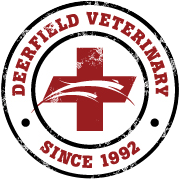Library
-
Choosing the right collar or harness for a dog requires understanding how each device works and what is best for the dog and the owner. Correct selection, fit, and use are crucial for any training tool's success.
-
Collie Eye Anomaly (CEA) is a genetic mutation affecting many breeds that causes developmental defects in the eye that can lead to vision deficits or blindness. This defect can be diagnosed by a veterinary ophthalmologist between 6 and 8 weeks of age by visualizing spots of choroidal hypoplasia or a colobomas . It can be associated with microphthalmia or enophthalmia. It can lead to retinal detachment and blindness. Although laser repair of partial retinal detachments can be attempted if detected in early stages, there is generally no treatment for CEA. Vision varies depending on the extent of the lesions and some dogs will become blind. Prevention requires not breeding animals that carry the mutation and this can be achieved through genetic testing of breeding dogs.
-
Colloidal oatmeal topical (brand name DermAllay®, Epi-Soothe, others) is an anti-inflammatory, antipruritic (anti-itching), and emollient (softening, soothing) agent used in the treatment of surface skin disorders and skin reactions in cats and dogs. It is made from oat grains (Avena sativa). Colloidal oatmeal topical comes in spray, cream rinse, and shampoo forms.
-
Color dilution alopecia is an autosomal recessive genetic disorder that affects dogs with dilute-colored coats causing hair loss. Some dogs will also be affected by secondary bacterial infections so topical management and pruritus treatments may be needed to improve the dog's comfort. Affected dogs and their relatives should not be bred.
-
Colostrum is given by mouth and is used over the counter to treat various immune-mediated and inflammatory conditions. Give as directed by your veterinarian. Side effects are uncommon and may include gastrointestinal upset in pets with a dairy allergy. There are no known contraindications. If a negative reaction occurs, please call your veterinary office.
-
Pet birds often become ill when they are not cared for or fed appropriately. Birds can develop infections with bacteria (e.g., Chlamydia psittaci) and parasites (e.g., Giardia). They also commonly suffer from reproductive problems (e.g., egg binding and tumors) and feather-picking. Birds on all-seed, high-fat diets may become obese and develop fatty liver syndrome. Older birds may develop cloacal papillomas or cancer. Your veterinarian familiar with birds will formulate an appropriate diagnostic and treatment plan if your pet bird becomes ill.
-
Turtles may be affected by one of the following diseases: metabolic bone disease (MBD), vitamin A deficiency, respiratory diseases, abscesses, shell infections, shell fractures, and parasites. Improper diet, poor water filtration, and lack of UV light are contributing factors for many aquatic turtle diseases. Seek immediate veterinary care if your aquatic turtle shows any deviation from normal.
-
Turtles may be affected by any of the following conditions: metabolic bone disease (MBD), vitamin A deficiency, respiratory infections, abscesses, shell infections and fractures, and parasites. This article outlines typical signs and treatment for these common conditions. Seek immediate veterinary care if there is any deviation from normal in your pet turtle.
-
Common conditions of pet snakes include infectious stomatitis (mouth rot), parasites, skin infections, respiratory disease, septicemia, and viral diseases such as inclusion body disease (IBD). Signs may be specific for a certain disease or non-specific, such as lack of appetite and lethargy, which can be seen with many diseases. Any deviation from normal is a cause for concern and should be evaluated by your veterinarian as soon as possible. This handout outlines how to know your snake is sick and the treatments for common conditions.
-
There are several problems that can occur in aquatic turtles. This handout discusses the most noted problems: calculi, tissue prolapses, irregular shell growth, shell fractures or trauma, algae on the shell, skin and shell sloughing, Salmonella infection that can be passed to humans, dystocia, and hibernation.
